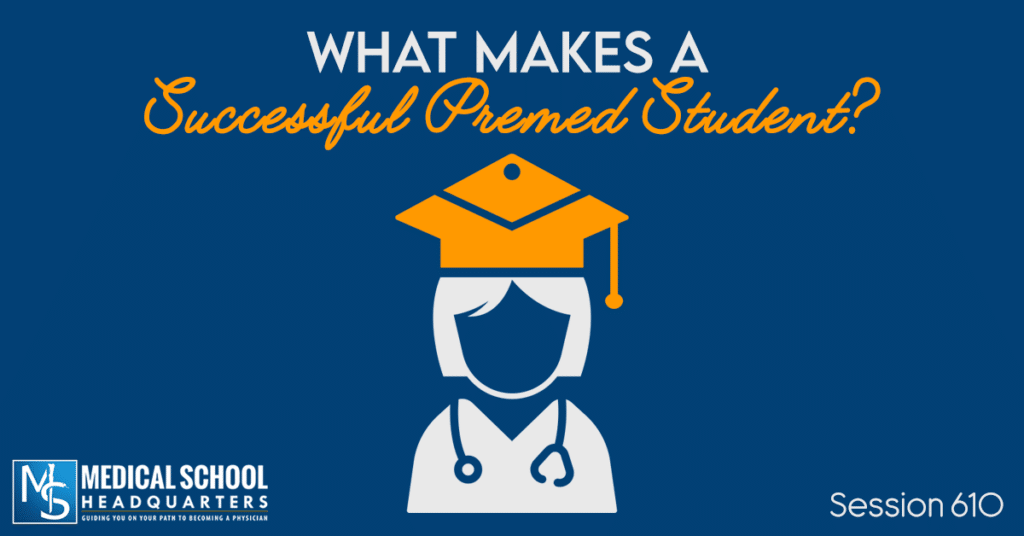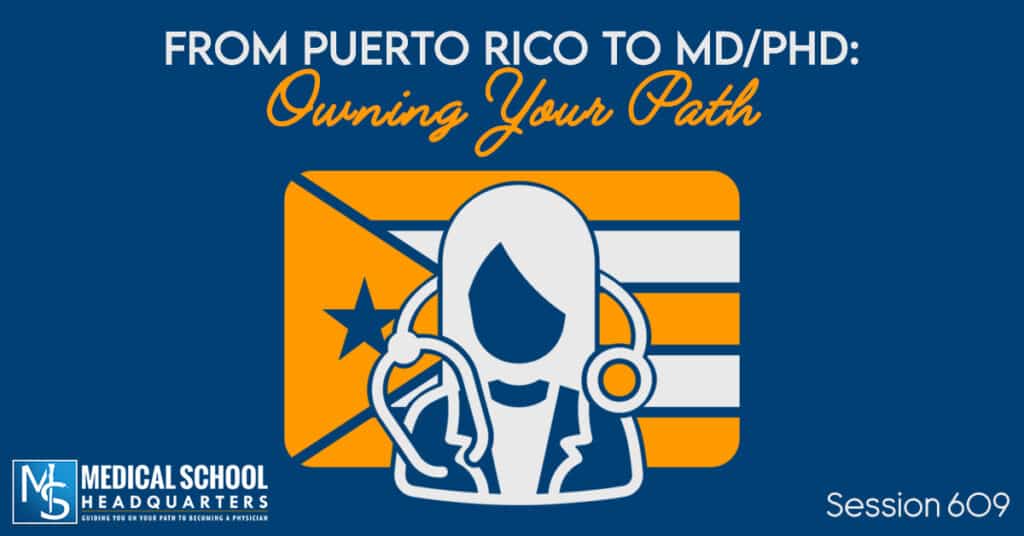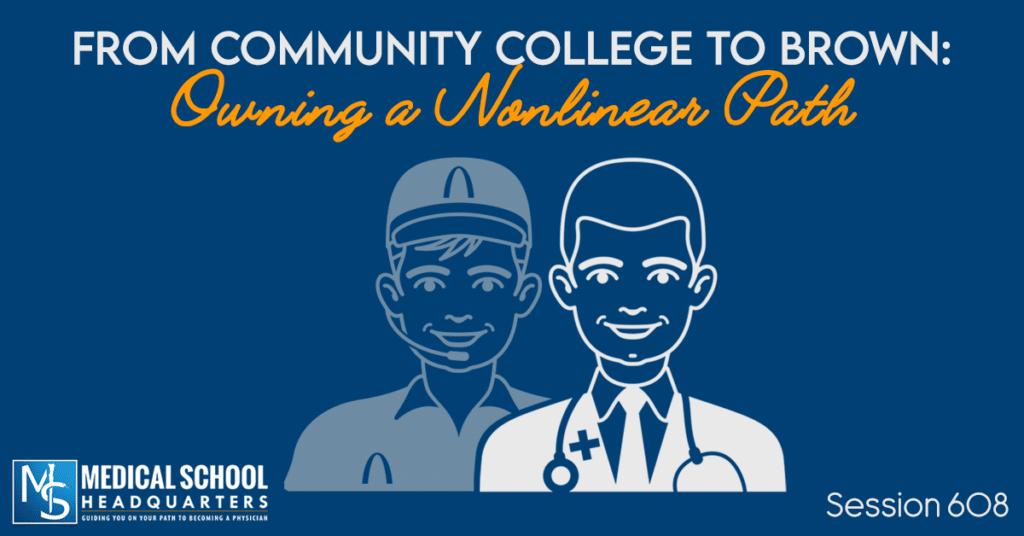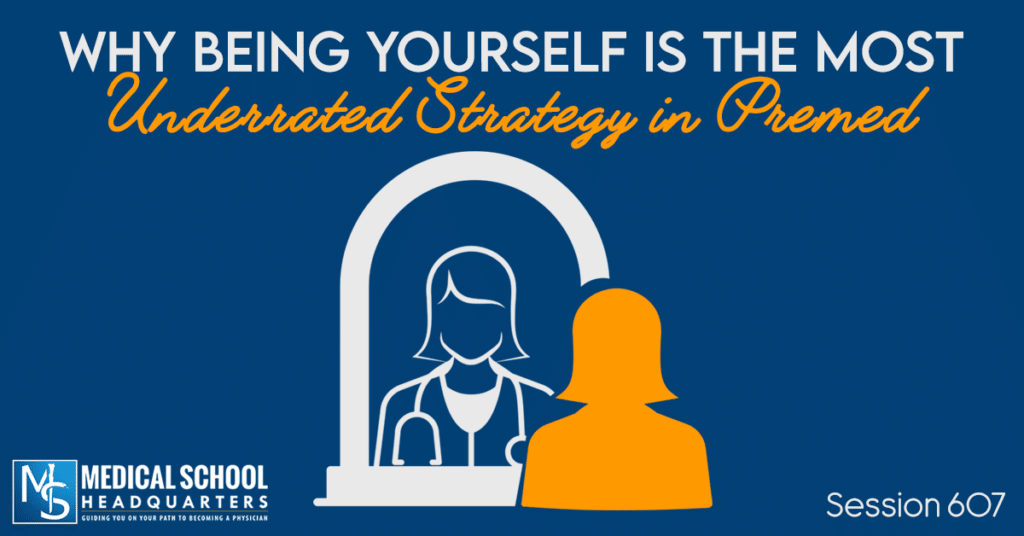Your personal statement is one of the first parts of your medical school application you will write. It’s also the section most students will spend the longest on, rightfully so. Do not underestimate the importance of crafting the best personal statement possible.
What Is the Personal Statement and Why Do You Need to Write One?
Many students who struggle with writing their personal statement don’t understand what their goal should be. The job of the personal statement is to explain why you want to be a physician. It’s not to sell yourself as a student or future physician.
When you’re wondering whether to include specific interaction, ask yourself whether it impacted your decision to become a physician. Before accepting you, the Admissions Committee wants to ensure that you know what you’re getting yourself into and that you’re doing it for the right reasons.
Your personal statement should include the experiences that first led you to explore a career in healthcare. This is true even if you initially considered becoming something other than a physician. Whatever first led you to consider a career in healthcare is what we generally refer to as your “seed.”
If you started out pursuing a non-physician path, your personal statement should include the experiences that led you to pivot toward pursuing medical school. The experiences that furthered this feeling or encouraged you to shift from another area of healthcare to medicine are what we refer to as “watering events.” These watering events will make up the bulk of your personal statement.
The Importance of the Personal Statement
The personal statement is so important because it helps the admissions committee connect with and understand you and make sure that you know what you’re getting yourself into. They’re going to be less willing to take a risk on a student they think will be unhappy as a physician. So if your personal statement reads like you’re going into medicine for the wrong reasons (money, prestige, parental pressure, etc.), they’re unlikely to admit you even if you have great stats.
It’s in your best interest to ensure that you have enough exposure to the field to be sure that this is the right career for you. Otherwise, you might find yourself burned out and miserable early in your career or leave medicine altogether. There is no single right reason to become a physician, but pursuing medicine should, at the very least, be an informed decision.
Like nearly everything in this process, how each school weighs the personal statement depends on the school. Many schools will rely heavily on the personal statement when deciding whether to offer a student an interview, and other schools may weigh other sections more heavily.
Since you can’t know or control how the admissions committee will evaluate your personal statement, you should focus on doing your best on each aspect of the medical school application.
When Should You Write the Personal Statement?
Most students find that the personal statement takes longer than they think it will. You don’t want to be caught not giving yourself enough time to write a great personal statement, so starting early is critical. Because of the time required to draft the personal statement, we recommend beginning in January of the year you apply to medical school.
You might be tempted to try to write the perfect personal statement on your first try or feel like you have to. This kind of thinking will only hold you back and keep you from getting started.
This very early stage of drafting might just look like brainstorming and listing all of the stories you might want to include in your personal statement. It’s also a good time to journal and reflect on your journey so far so that you can dig deeper in your personal statement and activity descriptions.
Starting early gives you plenty of time to write the personal statement, edit your drafts, get feedback from fresh eyes, and polish it. Taking time away from it between drafts will also give you the perspective to be able to evaluate your own work.
Ideally, you’re journaling and reflecting long before it’s time to actually sit down and write the personal statement. How you do this journaling is up to what makes sense for you. You can do it in a physical journal, a spreadsheet, a word document, or in the journal entry space in Mappd whenever you go to log your hours. This way, even if you’ve forgotten the details or the impact of an experience when you go to write your personal statement, you can refresh it in your mind.
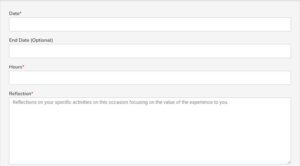
How Long is the Personal Statement?
AACOMAS and AMCAS cap the personal statement at 5,300 characters, including spaces. TMDSAS allots 5,000 characters for the personal statement, also including spaces. While you don’t have to use every character available to you, you should aim for a length of at least 5,000 characters for AACOMAS and AMCAS. Anything shorter may not have enough substance or may not flow as well as a slightly longer essay would.
If you’re really struggling to come up with enough material for your personal statement, this might be a clue that you haven’t had enough experience to prove to yourself that you want to be a physician. Or it might be a sign that you haven’t reflected on your experiences deeply enough. Either way, this should be a sign to take a hard look at your journey so far and look for any shortcomings. You want to find and fix these before you hit submit on your application.
What Makes a Great Personal Statement?
The best personal statements tell a story that is authentic to the student writing it. You should aim to engage the senses of the reader and let them in on what you felt emotionally. The best and easiest way to do this is to focus on showing vs. telling. If you need advice on how to do this effectively, you can find plenty of guides and articles online about showing and effective storytelling.
You might need to spend your first draft just getting the facts down and then reword a lot of it to do more showing as you revise and edit, and that’s okay. Focus on improving each draft and emphasizing showing by the final draft instead of getting stuck on doing it perfectly from the very beginning.
You also want to start in a way that makes the admissions officer want to keep reading. Keep in mind that the personal statement doesn’t have to be in chronological order, so you can start with the most interesting part of your story.
As you get into the later stages of editing, you can also rearrange the pieces and see which order is the most interesting to read. This is a place where having another set of eyes can be incredibly helpful in giving feedback on whether things make sense or flow well.
By the end of a great personal statement, the reader knows and deeply understands why you want to be a doctor because they went along the journey with you. They saw your first interaction with a patient and felt what you felt as you held your mother’s hand in the hospital. It makes complete sense that your path has led you here and that this is what you want to do.

Should You Worry About Being Cliche?
Many students worry that their personal statement is cliche because their experiences are common. Common and cliché are not the same thing. The basic facts of a story might be common, but once you add your unique reflection and your unique background, it moves beyond that. If you don’t add anything to make it specific to your story, then it will be cliché. As long as you focus on your story and how you got here, someone will be able to connect with your story and want to get to know you better.
Reflection is the Key
One of the biggest mistakes students make in both their personal statement and activity descriptions is focusing too much on the what and not enough on the why – why these experiences matter.
You can tell the most interesting story in the world, but if you don’t dig deeper and explain why these experiences affected you and made you want to be a physician, your story won’t have any lasting impact on the reader.
In order to help someone else understand why you want to be a doctor, you need to fully understand that yourself. This will help make sure that you’re making the right decision, and it will allow you to tell your story more clearly and with a greater impact on the reader.
Then, once you fully understand for yourself your why and all of your reasons, you can more easily express that to the reader. You should follow each anecdote and each experience with a reflection on why that particular experience was so meaningful to you. What impact did it have on your journey? How did it strengthen your desire to become a physician? What did you learn from it?
You don’t have space to answer all of these questions for every story, but they’re the questions you should ask yourself, and then focus on the most important takeaway when writing. You should focus on the lessons or experiences that strengthened your desire to be a physician. Resist the temptation to describe what you learned about being a physician or the temptation to lean into the generic.
A Strong Send-Off
Just like you want a strong hook at the start to pull the reader in, you also want a strong conclusion. When you’re writing an English paper, your conclusion is often a summary of everything you’ve said before. This is not true for the personal statement. Repeating yourself is a waste of the limited space you have and isn’t very interesting for the reader.
Instead, the conclusion is a great place to talk about what you hope to do as a physician. What kind of change do you want to make in the world? How will you make your school proud after you’ve received your diploma? Paint a picture of the kind of physician you want to be.
Editing the Personal Statement
Who Should You Ask?
The ideal person to edit your personal statement is someone with knowledge of the medical school application process and an understanding of what makes a good personal statement. A great first stop is your school’s pre-health advising office. Hopefully, your advisor will have enough experience to give you great feedback on your personal statement.
If you take time away from the personal statement between drafts, you will also be in a better place to evaluate your own work, and you might find the examples in The Premed Playbook: Guide to the Personal Statement helpful during this process.
If you ask someone in your life or a mentor to edit your personal statement, you can give them this review sheet to help guide their feedback. This is especially helpful if they’re not an expert on the medical school application process.
There are also lots of paid services out there. We also offer essay feedback services. Students who join Application Academy can submit their essays for feedback during class and get feedback from their fellow students and TAs.
Editing for Grammar
We recommend that in addition to using your word processor’s built-in spell check, you sign up for a free Grammarly* account. It will not only help with things like spelling and punctuation but will also help ensure your sentence structure is clear.
You can use Grammarly for your application essays, academic papers, and emails to professors asking for letters of recommendation. You should take care to make sure that your personal statement and other application essays are free of errors and typos.
A high amount of errors can be distracting to the reader and make it come across that you didn’t take enough time and care with your personal statement to proofread it thoroughly. Proofreading is a step in the editing process where it’s perfectly fine to have someone less knowledgeable about medical school applications look over your work since they’re not editing for content. If you know someone with really good attention to detail or who gets good grades on their own papers, ask them to look over it for you with an eye to grammatical errors and misspelled words.
What to Avoid In Your Personal Statement
While writing your personal statement, you should write your story authentically, and you should try to avoid anything that will make the admissions committee want to stop reading or view you in a negative light. Here are a few examples of things to avoid, and you can find more examples in The Premed Playbook Guide to the Medical School Personal Statement.
Negativity
We all come away from our experiences with positive and negative things about them. However, you should avoid focusing on the negative aspects of your experiences when writing your medical school application.
People who are overly negative aren’t fun to be around and don’t make for very good classmates or community members. It’s easy to say no to a student who seems negative, as the admissions committee is building a community of students who will work closely together and rely on one another for the next four years.
It doesn’t mean that you can’t talk about a time when you had a negative experience or can’t be honest. You should instead focus on what you learned from the situation and what positive aspects you can take from it.
Resume
You should not use your personal statement as an opportunity to rehash your resume. That isn’t interesting to read and is a waste of the opportunity you’re given to let the admissions committee understand your journey. You’ve already shared your most important activities and experiences in your activity descriptions. Focusing on your resume also does not answer the question that the personal statement is asking you, which is: why do you want to be a physician?
Research
You can talk about research as part of your personal statement, but you should not focus on it. It’s better to talk about it in your conclusion as part of what you want to do as a physician rather than the driving force behind why you want to be a physician.
When a student focuses on research in their personal statement, it calls into question whether they have enough clinical experience to drive their interest in medicine or if they are more interested in lab work than patient care. Even if you are applying to MD/Ph.D. or DO/Ph.D. programs, you are given multiple other opportunities to talk about your research experiences so far and your future interest in it.
Emotional Topics
With this, you need to think carefully about how you will handle it if the topic is brought up in an interview. Anything you put in your application is fair game to be asked about in an interview, and you should keep that in mind.
Our cofounder Rachel Grubbs likes to advise students to discuss “scars, not wounds.” If the emotional topic is something you’ve already processed, it will be easier to talk about calmly during an interview. Tearing up is okay and human, but you don’t want to get so emotional that you find it difficult to continue your interview.
* This link is an affiliate link, meaning we receive a small commission when you sign up at no cost to you.
More Links and Resources
The Premed Playbook Guide to the Medical School Personal Statement
Join Application Academy – now year-round
New: Premed Pathway – advising designed for students earlier in the premed journey



